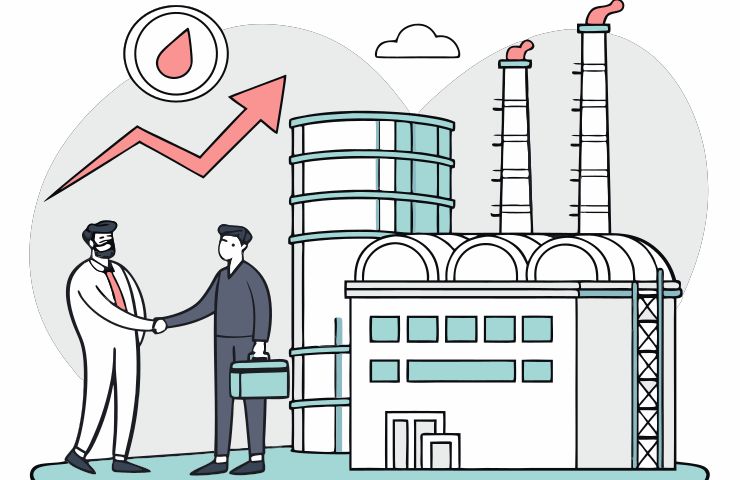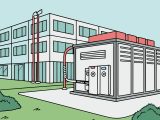
Hydrogen Production: Macquarie Kicks Off $770M Sale of Korea’s Approtium
September 26, 2025You might’ve caught wind of Macquarie Asset Management putting Approtium Co., Ltd.—South Korea’s biggest commercial hydrogen producer—up for sale. The number floating around? Over 1 trillion won (about $770 million). Hailing from Ulsan, Approtium has nearly doubled revenue since Macquarie took the reins in 2021. How? By beefing up its hydrogen infrastructure and turning up the throttle on carbon capture operations. This move really highlights how ownership in Asia’s clean energy space is evolving, and you can bet it’s got private equity and infrastructure investors circling.
Policy Backdrop
South Korea’s Ministry of Trade, Industry and Energy is dead set on making hydrogen a strategic pillar—aiming to pull 30% of the nation’s energy from low-carbon hydrogen by 2050. The 2023 National Hydrogen Roadmap rolled out tender schemes that reward CCS-enabled hydrogen production, and the state-backed Korea Hydrogen Fund along with feed-in premiums keep project economics humming. Toss in generous subsidies, tax breaks and a forthcoming hydrogen certification scheme, and companies like Approtium can lock in offtake deals. A lot of folks see this sale as a bellwether for how policy incentives are actually guiding private capital.
Market Implications
Ask yourself: what happens when Korea fast-forwards its hydrogen economy roadmap? Under Macquarie Asset Management’s watch, Approtium’s top line jumped from 228.3 billion won in 2021 to 433.4 billion won in 2024. By packaging up a solid asset with steady cash flows, clear sustainability metrics and long-dated offtake contracts, they’re teeing up for a bidding frenzy from global infrastructure funds and private equity outfits.
We’re seeing a real surge in investment into energy transition platforms. This deal might just trigger a wave of bids for Asia-based hydrogen assets, as funds chase stable returns backed by government support. And thanks to attractive tariffs and infrastructure grants, assets with built-in CCS can trim operating costs and dial down risk profiles.
Stakeholder Reactions
Over in Ulsan, industrial players—from petrochemical giants to shipbuilders—lean on Approtium as a go-to supplier. A lot of executives see this sale as a chance to renegotiate offtake terms or team up on next-gen hydrogen projects. The city’s leaders are on the edge of their seats too, hoping new owners will align with Ulsan’s ambitions to become a zero-emission industrial hub.
Investor Landscape
Expect a crowded field of bidders: Asia-focused infrastructure funds, global private equity firms, sovereign wealth pots and pension funds. They love Approtium’s predictable cash flows, healthy margin profile and optionality for green hydrogen imports. The finish line? A mid-2026 close, pending the usual due diligence and regulatory thumbs-up.
Corporate Strategy
Macquarie has a playbook: build up transition assets, nudge growth, de-risk operations, then exit in about three to five years to recycle capital. Letting go of Approtium after almost four years fits perfectly. It shows how Korea’s hydrogen scene has matured and that infrastructure investors are primed to jump in.
Heritage and Growth
Way back in 1964, this outfit started life as Deokyang, swapping industrial gases in Ulsan’s steel mills, shipyards and petrochemical complexes. The city’s existing petrochemical muscle and early hydrogen R&D made it a natural fit for big SMR projects. Since the 2021 acquisition and rebrand to Approtium, they’ve streamlined operations and even fired up their fifth liquid CO₂ storage plant—accelerating their carbon capture chops.
Operational Footprint in Ulsan
Today, Approtium runs several SMR plants and a sprawling network of underground hydrogen infrastructure pipelines stretching for tens of kilometers. They’re plowing capital into advanced CCS systems, including a trial set for 2026 at a depleted gas well in the East Sea. Their integrated logistics platform keeps everything from heavy industry to public fueling stations topped up, cementing Ulsan’s rep as Korea’s first hydrogen demo city.
Technical Snapshot
- Steam Methane Reforming (SMR): High-temp reactions break down methane with steam to produce hydrogen and CO₂.
- Carbon Capture and Storage (CCS): Captured CO₂ is liquefied for industrial use or sequestered underground.
- Hydrogen Pipeline Infrastructure: High-pressure lines deliver hydrogen efficiently to factories and refueling sites.
Parallel Moves in Asia
This sale isn’t happening in isolation. Across the region, Australia’s major funds are bankrolling green hydrogen export hubs, while European backers are eyeing East Asian assets to mix up their portfolios. Yet deals on the scale of Approtium remain rare, making this one a true yardstick for industrial decarbonization-focused infrastructure in Asia.
Key Takeaways
- Deal size: north of 1 trillion won (~$770M), up from 800 billion won in 2021.
- Revenue growth: 228.3 billion won in 2021 → 433.4 billion won in 2024.
- Assets: five SMR plants, a fifth liquid CO₂ facility, extensive pipeline grid, and advanced CCS systems.
- Strategic edge: long-dated offtake contracts, policy tailwinds, blue/green hydrogen options.
Looking Ahead
Under fresh ownership, Approtium could fast-track a shift toward green hydrogen imports and pursue blue hydrogen certification, tapping into new global standards. As South Korea tightens its 2050 net-zero goals, assets with built-in CCS and strong distribution networks are only going to get more valuable. We’ll be keeping our eyes peeled to see which investors step up and how this deal reshapes the competitive landscape for industrial decarbonization.
As Asia’s energy transition ramps up, selling Approtium isn’t just a corporate exit—it’s a landmark moment for hydrogen production and investment across the region.
Of course, the deal still needs the thumbs-up from South Korea’s Fair Trade Commission and Energy Ministry. They’ll be assessing how it impacts competition and national decarbonization targets before giving it the green light.



 With over 15 years of reporting hydrogen news, we are your premier source for the latest updates and insights in hydrogen and renewable energy.
With over 15 years of reporting hydrogen news, we are your premier source for the latest updates and insights in hydrogen and renewable energy.